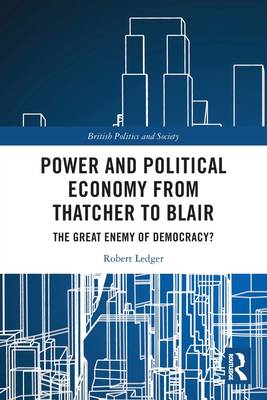
- Retrait gratuit dans votre magasin Club
- 7.000.000 titres dans notre catalogue
- Payer en toute sécurité
- Toujours un magasin près de chez vous
- Retrait gratuit dans votre magasin Club
- 7.000.0000 titres dans notre catalogue
- Payer en toute sécurité
- Toujours un magasin près de chez vous
Description
This book investigates the policies of the Thatcher, Major and Blair governments and their approaches towards concentration of economic and political power.
The 1979-2007 British governments have variously been described as liberal or, to use a political insult and a favourite academic label, neoliberal. One of the stated objectives of the Thatcher, Major and Blair governments--albeit with differing focal points--was to disperse power and to empower the individual. This was also a consistent theme of the first generation of neoliberals, who saw monopolies, vested interests and concentration more generally as the 'great enemy of democracy'. Under Thatcher and Major, Conservatives sought to liberalize the economy and spread ownership through policies like Right to Buy and privatisation. New Labour dispersed political power with its devolution agenda, granted operational independence to the Bank of England and put in place a seemingly robust antitrust framework. All governments during the 1979-2007 period pursued choice in public services. Yet our modern discourse characterises Britain as beset by endemic power concentration, in markets and politics. What went wrong? How did so-called neoliberal governments, which invoked liberty and empowerment, fail to disperse power and allow concentration to continue, recur or arise?
The book will be of interest to students and scholars of contemporary British history, political economy and politics, as well as specific areas of study such as Thatcherism and New Labour.
Spécifications
Parties prenantes
- Auteur(s) :
- Editeur:
Contenu
- Nombre de pages :
- 168
- Langue:
- Anglais
- Collection :
Caractéristiques
- EAN:
- 9780367714291
- Date de parution :
- 26-09-22
- Format:
- Livre broché
- Format numérique:
- Trade paperback (VS)
- Dimensions :
- 156 mm x 234 mm
- Poids :
- 254 g

Les avis
Nous publions uniquement les avis qui respectent les conditions requises. Consultez nos conditions pour les avis.






